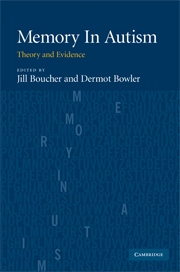Preface
Published online by Cambridge University Press: 05 November 2009
Summary
‘It's a poor sort of memory that only works backwards’, the Queen remarked.
Lewis Carroll, Through the Looking Glass (1872), chapter 5Memory is a funny thing. It is exercised in the present, but (we fondly suppose) it conjures up the past, or perhaps more accurately, what we register and recall from a time gone by. Sometimes it is only the effects of past experience that feature in memory – what we have come to know the world to be like, what we have learned words signify, what we feel we know is linked with what – and sometimes it seems more like revisiting what we experienced some while back (whether from a distant age, or from the moment just faded), how it was to be the person who we were then, seeing and feeling and thinking those things that we saw and felt and thought. Without memory of the world, or without memory of what we were when engaging with that world, we would become shadow-beings inhabiting a theatre of spectral forms.
As the Queen of Through the Looking Glass remarks, memory can't just be a matter of working backwards. Rather, it is the backward-seeming reach of personal experience that also exists in the present and the future, structured and understood by ways of knowing and communicating that are profoundly influenced by what we, the human community, share and judge alike. Memory shows us how we mentally reconstruct what has, and had, meaning.
- Type
- Chapter
- Information
- Memory In AutismTheory and Evidence, pp. xix - xxivPublisher: Cambridge University PressPrint publication year: 2008



